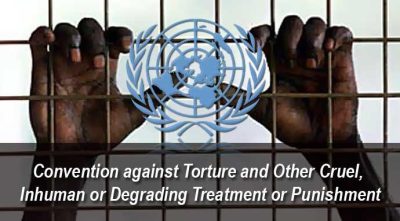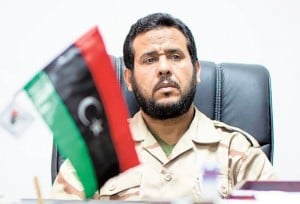Time for UK Government to Come Clean on Ties to U.S. Torture Program
UK government shamefully cooperated with U.S. in torture of al-Qaeda suspects

All Global Research articles can be read in 51 languages by activating the “Translate Website” drop down menu on the top banner of our home page (Desktop version).
To receive Global Research’s Daily Newsletter (selected articles), click here.
Visit and follow us on Instagram at @globalresearch_crg.
***
We Americans have had a painful and difficult national debate over the past 20 years relative to torture. Torture was official U.S. government policy from 2002 until at least 2005, and that iteration was not formally outlawed until passage of the McCain-Feinstein Amendment in 2015. (The torture program was a highly-classified secret from 2002 until I revealed it in a nationally-televised interview in December 2007.)
In truth, torture has been illegal in the U.S. since at least the end of World War II. In 1946, the U.S. Government executed Japanese soldiers who had waterboarded American prisoners of war. In January 1968, the Washington Post ran a front-page photograph showing an American soldier waterboarding a North Vietnamese prisoner.

Source: time.com
On the day the photo ran, Secretary of Defense Robert McNamara ordered an investigation. The soldier was arrested, tried, convicted of torture, and sentenced to 20 years in prison. Torture was clearly a crime in 1946 and in 1968. But somehow, due to the legalistic gymnastics of the Bush Administration, torture was somehow magically legal in 2002. The law hadn’t changed; Americans had. It took us until 2015 to come to our collective senses again.
What Americans generally don’t discuss is the position and actions on torture of our closest friend and ally, the United Kingdom. There is very little in the American media addressing the UK position on torture and whether the UK participated in “enhanced” interrogations during the so-called War on Terror.
Certainly, there has been reporting on British actions in Northern Ireland during the “troubles” there. We know, for example, about the “hooded men”—Northern Irish men who were arrested and held without charge by British officers, hooded, kept in stress positions, deprived of sleep, deprived of food and water, and in some cases thrown out of low-flying helicopters. (Sound familiar?)
But precious little has been said about UK cooperation with the U.S. Government against al-Qaeda members and their allies.

British troops hold captive in Iraq. [Source: irishtimes.com]
With that said, we can still draw conclusions based on what little the UK Government has revealed. In 2020, for example, a UK court denied a request by two members of Parliament and a human rights organization to publicly investigate the role of the British intelligence services in torture and rendition.
The judges declared that the MPs and the human rights organization Reprieve did not have standing to force the case, and that only the actual victims of torture and rendition would have standing. They did not address the fact that many of those who had allegedly been tortured were either missing or dead because of, well, torture and rendition.
In an earlier hearing related to the same case, judges heard that there were at least 15 people who had alleged that they had been tortured by British intelligence officers, but very few details from those cases were ever made public.
Only one name was revealed at the time—that of Abdel Hakim Belhaj, a Libyan national snatched by the CIA in Thailand in 2004 with “help” from the British MI-6. Belhaj was rendered to Libya, tortured again, and sentenced to death, although he somehow survived the experience. Then-Prime Minister Theresa May eventually apologized to him.
Even if British intelligence officers did not personally torture Belhaj or other prisoners, they must answer for their cooperation with the United States and other countries where torture was used. And they must account for the information they used in other cases when that information was collected through torture.
The UK, like the U.S., maintains close relationships on, and “memoranda of understanding” on, counterterrorism with countries including Jordan, Libya, and Lebanon, countries known to use torture.
In the words of Vincent Cannistraro, the CIA’s former Director of Counterterrorism, “You would have to be deaf, dumb and blind” to believe that some of these countries would not use torture, despite promises to the contrary. Why won’t the British government promise to not use information gathered through the use of torture? Its people are still waiting for an answer.
The UK, like the U.S., is an original signatory to the United Nations Convention Against Torture and Other Cruel, Inhuman or Degrading Treatment or Punishment.
Its tenets are actually quite simple. The agreement bans, “Any act by which severe pain or suffering, whether physical or mental, is intentionally inflicted on a person for such purposes as obtaining from him or a third person information or a confession, punishing him for an act he or a third person has committed or is suspected of having committed, or intimidating or coercing him or a third person, or for any reason based on discrimination of any kind, when such pain or suffering is inflicted by or at the instigation of or with the consent or acquiescence of a public official or other person acting in an official capacity.”
It doesn’t get much more clear than that. Now it’s up to the UK government to come clean.
*
Note to readers: Please click the share buttons above or below. Follow us on Instagram, @globalresearch_crg. Forward this article to your email lists. Crosspost on your blog site, internet forums. etc.
John Kiriakou was a CIA analyst and case officer from 1990 to 2004.
In December 2007, John was the first U.S. government official to confirm that waterboarding was used to interrogate al-Qaeda prisoners, a practice he described as torture.
Kiriakou was a former senior investigator for the Senate Foreign Relations Committee and a former counter-terrorism consultant. While employed with the CIA, he was involved in critical counter-terrorism missions following the terrorist attacks of September 11, 2001, but refused to be trained in so-called “enhanced interrogation techniques,” nor did he ever authorize or engage in such crimes.
After leaving the CIA, Kiriakou appeared on ABC News in an interview with Brian Ross, during which he became the first former CIA officer to confirm the existence of the CIA’s torture program. Kiriakou’s interview revealed that this practice was not just the result of a few rogue agents, but was official U.S. policy approved at the highest levels of the government.
Kiriakou is the sole CIA agent to go to jail in connection with the U.S. torture program, despite the fact that he never tortured anyone. Rather, he blew the whistle on this horrific wrongdoing.
John can be reached at: [email protected].
Featured image is from redress.org


